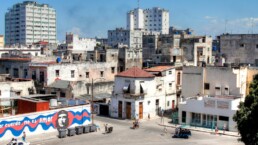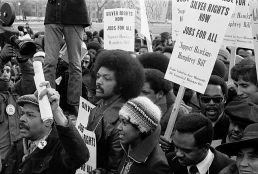Suffocated for more than six decades by the U.S. state of economic siege, Cuba is facing serious difficulties that are impacting the well-being of the population.
By Salim Lamrani, Z Network
On March 17, 2024, in Santiago, dozens of people peacefully expressed their discontent with the material difficulties of daily life. The generally well-informed US news agency The Associated Press reported the presence of “small groups of protesters”. They were received by the secretary of the city’s Communist Party to air their grievances. Government authorities stressed that the demonstrations had taken place within a respectful framework.

Cuba is in the throes of a serious economic crisis which is affecting the well-being of the population. Power cuts, due to the lack of oil supplies, are common and can sometimes last up to 8 hours. The shortage also affects the food sector, making it increasingly difficult for Cuban households to find basic necessities. For the first time in its history, Cuba has called on the United Nations World Food Program to help cope with the situation.
The United States, through its embassy in Havana, was quick to respond, highlighting “the lack of food and electricity” on the island. “We urge the Cuban government to respect the human rights of the protesters and attend to the legitimate needs of the Cuban people”. Havana immediately denounced Washington’s interference and hypocrisy, summoning the US chargé d’affaires, Benjamin Ziff, to the Ministry of Foreign Affairs.
Indeed, the United States is primarily responsible for the island’s economic situation. Since 1960, Washington has imposed sanctions that affect all sectors of society, especially the most vulnerable groups such as children, pregnant women, the elderly and the sick. Following the collapse of the USSR in 1991, far from normalizing relations with Cuba, the Bush Sr. administration increased the state of siege by passing the Torricelli Act in 1992, which is illegal due to its extraterritorial scope. His successor, Democrat Bill Clinton, followed suit with the Helms-Burton Act in 1996, which violates elementary principles of public international law due to its retroactive nature. George W. Bush reinforced these coercive measures by passing new sanctions in 2004 and 2006.
A truce was observed during Barack Obama’s second term when the historic process of rapprochement between the two countries took place, officially launched in December 2014. Constructive measures were adopted by Washington, but the sanctions were not lifted. Indeed, it’s worth noting that the Obama I administration was the one that imposed the harshest fines on international companies and banks that had ties with Cuba.
In 2017, the arrival of Donald Trump to power put an end to this rapprochement. Washington reverted to the policy of confrontation, imposing 243 new sanctions in the space of four years – more than one a week – targeting vital sectors of the Cuban economy, namely the export of medical services, tourism and money transfers. Of these, 50 were imposed in the midst of the Covid-19 pandemic, depriving the island of vital equipment such as respirators and severely affecting the healthcare system.
The election of Joe Biden in 2020 did not mean change for Cuba. He has maintained most of the measures taken by his predecessor. The figures are revealing of the impact of economic sanctions on Cubans’ human rights. Over 80% of the population was born under sanctions. These sanctions cost the Cuban economy an average of $15 million a day. In November 2023, for the 31st consecutive year, 187 countries, including the United States’ staunchest allies, called for “the lifting of Washington’s economic, commercial and financial blockade” against Cuba. Anachronistic, cruel and illegal, the blockade is the main obstacle to the country’s development, and is responsible for the current suffering of the island’s population.
Salim Lamrani is Docteur ès Études Ibériques et Latino-américaines at the University of Paris- Sorbonne Paris IV, and associate professor at the University of La Réunion. As a widely published French journalist, he specializes in Cuban-American relations. He is the author of The Economic War Against Cuba: A Historical and Legal Perspective on the U.S. Blockade.
Recent Posts
‘The Siege Must Be Broken’: Countries Called to Ship Fuel to Cuba After Trump Tariffs Struck Down
February 21, 2026
Take Action Now The US Supreme Court’s ruling “implies that Trump’s recent order imposing tariffs on countries selling oil to Cuba exceeds the…
Elite Depravity in Imperial Decline, A Zero Hour Conversation With Richard Wolff
February 20, 2026
Take Action Now “The system self-selects for psychopathy… the most sociopathically obsessive competitor and accumulator of personal power and…
Economics of Health For All: The Plan to Put Health at the Heart of the Global Economy
February 20, 2026
Take Action Now At the World Health Assembly in May, member states may endorse an unprecedented strategy declaring that health is not a cost – but…
The Left Owes a Lot to Jesse Jackson
February 19, 2026
Take Action Now As a movement builder, spokesperson, and candidate for the presidency, Jesse Jackson’s accomplishments were massive. He was one of…




